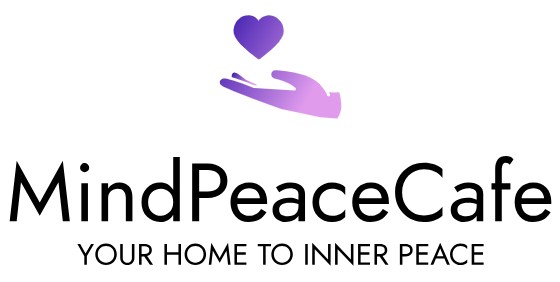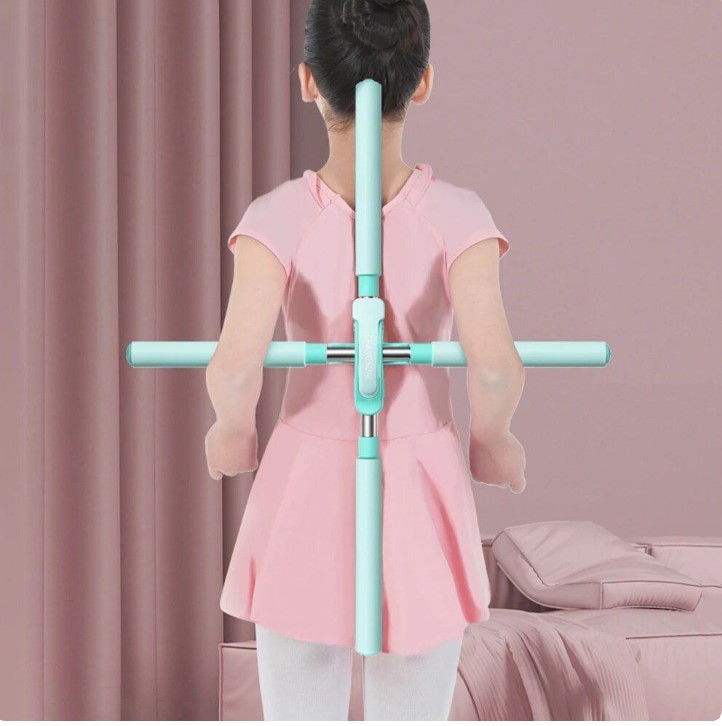Nurturing Young Minds: The Transformative Power of Guided Meditation

Welcome to the world of mindfulness and guided meditation for kids! In our fast-paced, bustling world, children are facing increasing pressures, which can often lead to stress and emotional challenges. This article, ‘Petit BamBou for Kids: Guided Meditation for Young Minds,’ aims to explore the positive impact of mindfulness on the mental well-being of children. From understanding the power of mindfulness to discovering how Petit BamBou utilizes innovative meditation techniques for kids, we’ll delve into the ways in which guided meditation can revolutionize your child’s emotional and cognitive development. Moreover, we’ll uncover how parental involvement and practical tips can seamlessly integrate meditation into a child’s daily routine, fostering a harmonious environment for children to thrive.
1. Introduction to Guided Meditation for Kids
Hello and welcome to an exploration of guided meditation for kids! In today’s fast-paced world, nurturing the mental well-being of children has become increasingly important. This article sets out to uncover the significance and impact of mindfulness in shaping the emotional and cognitive development of our young ones. Mindfulness and meditation not only offer a tranquil escape but also play a pivotal role in bolstering emotional resilience and cognitive abilities, laying a strong foundation for their overall well-being. Through this journey, we’ll unravel how mindfulness serves as a guiding light for children, empowering them to navigate through life’s challenges with grace and inner strength.
Research has shown that mindfulness and meditation not only enhance focus and reduce stress in children but also contribute significantly to their emotional regulation. Cultivating a practice of mindfulness in children from a young age can set them on a path towards a more balanced and harmonious life. By understanding the incredible power of mindfulness, we, as parents and caregivers, can equip our children with the invaluable tools to face the world with calm and confidence.
Our goal is to showcase the transformative impact of mindfulness on children and highlight how guided meditation can influence their mental well-being, allowing them to flourish and thrive in an ever-changing world.
The Power of Mindfulness
Let’s embark on a journey to uncover the immense influence of mindfulness and meditation on the emotional and cognitive development of children. Mindfulness is like a superpower that equips children with the ability to navigate life’s challenges with resilience and grace. By exploring the power of mindfulness, we open doors to better understand how simple yet profound practices can significantly impact the well-being of our young ones.
Research has shown that mindfulness and meditation are not just adults’ tools; they also hold tremendous value for children. These practices contribute to improved focus, reduced stress, and enhanced emotional regulation. As kids engage in mindfulness, they learn to acknowledge their emotions, understand their thoughts, and create a space for calmness within. This lays a sturdy foundation for their emotional intelligence and cognitive growth, shaping them into more empathetic and compassionate individuals.
In today’s bustling world, where distractions abound, mindfulness acts as an anchor, grounding children in the present moment, fostering a sense of awareness and empathy. Understanding the power of mindfulness in developing children’s emotional and cognitive capabilities can empower parents and educators to integrate these practices into their daily routines, enabling children to blossom into kind-hearted, resilient individuals.
Benefits of Guided Meditation for Young Minds
When it comes to children’s well-being, the benefits of guided meditation are nothing short of remarkable. By delving into the advantages of meditation for young minds, we uncover a world of positivity and growth. Guided meditation serves as a gentle yet powerful tool that helps children reduce stress, enhance focus, and regulate their emotions. These remarkable benefits lay the groundwork for a healthier and more balanced emotional landscape for our young ones, setting the stage for their future success and happiness.
Through meditation, children gain the invaluable ability to combat the pressures of today’s fast-paced world, allowing them to find moments of calm and tranquility. By focusing on breathing exercises and gentle visualization, kids learn to center themselves, which, in turn, reduces their stress levels and fosters a sense of inner peace. Moreover, as children engage in regular meditation practices, they experience improved focus and concentration, contributing to their academic and personal growth, setting a solid foundation for their future endeavors.
Emotional regulation is another key area where guided meditation shines. By providing children with the tools to understand and manage their emotions, meditation empowers them to navigate life’s ups and downs with greater resilience and self-assurance. By highlighting these benefits of guided meditation, we aim to showcase the positive impact these practices can have on children’s overall well-being and offer a roadmap for parents and educators to integrate these techniques into the lives of the young ones.
2. Petit BamBou for Kids: A Closer Look

Let’s take a closer look at how Petit BamBou is making waves in the realm of guided meditation for kids. Petit BamBou has ingeniously crafted a world of mindfulness tailored to engage and support young minds. Through delightful, interactive sessions, Petit BamBou invites children into a world of peaceful exploration, fostering a positive connection with mindfulness at an early age. By employing innovative meditation techniques, Petit BamBou has successfully carved out a unique space where kids can cultivate a sense of tranquility and inner peace in a playful and engaging manner.
Petit BamBou’s approach to guided meditation for kids is nothing short of revolutionary. Understanding the distinct needs of young minds, Petit BamBou has curated interactive meditation experiences that captivate children’s imagination and nurture their budding mindfulness journey. By intertwining storytelling, gentle breathing exercises, and soothing visualizations, Petit BamBou creates an enchanting environment where kids are encouraged to embark on a journey of self-discovery and emotional well-being.
With an astute understanding of the importance of mindfulness for children, Petit BamBou has succeeded in crafting a space where young minds can flourish. Through their engaging and innovative meditation techniques, Petit BamBou is paving the way for children to embrace mindfulness, laying the groundwork for a more peaceful and balanced inner world.
Innovative Meditation Techniques for Children
Discovering the world of tailored meditation methods specifically designed for children is an enriching experience, especially when it comes to Petit BamBou’s innovative approach. Petit BamBou has crafted meditation techniques that resonate with children, offering a blend of creativity and mindfulness to connect with and cater to the unique needs of young minds. By intertwining storytelling, calming visualizations, and gentle breathing exercises, Petit BamBou’s tailored methods create a space where kids can explore the art of mindfulness in an engaging and enjoyable manner.
At the heart of Petit BamBou’s meditation techniques lies the understanding that children thrive in environments that inspire imagination and creativity. Through their innovative approach, Petit BamBou has successfully fostered a space where children can embark on a journey of self-discovery, developing essential emotional and cognitive skills in the process. By infusing meditation with captivating narratives and gentle exercises, Petit BamBou has managed to create an environment that seamlessly intertwines playfulness and mindfulness, empowering children to embrace these practices with joy and enthusiasm.
Petit BamBou’s tailored meditation methods stand as a testament to the transformative power of mindfulness for children. By exploring these innovative techniques, we uncover a world where children are encouraged to express their creativity, build emotional resilience, and nurture a sense of inner peace, setting the stage for a lifetime of well-being and mindfulness.
Interactive and Engaging Meditation Sessions
Uncovering the world of interactive and engaging meditation sessions tailored for kids provides an exciting insight into how Petit BamBou is reshaping mindfulness for young minds. Petit BamBou has artfully created meditation experiences that captivate children’s imagination, leading them on a journey of exploration and self-discovery. Through a harmonious blend of storytelling, playful visualizations, and soothing exercises, Petit BamBou’s interactive sessions foster a positive and joyful approach to mindfulness. These engaging experiences not only cultivate a sense of tranquility but also uplift children, nurturing a lifelong appreciation for the benefits of mindfulness.
At the core of Petit BamBou’s interactive meditation sessions lies a dedication to crafting an environment where children feel heard, inspired, and empowered. By incorporating vibrant storytelling and interactive elements, Petit BamBou paints a delightful canvas that ignites children’s curiosity and enthusiasm for mindfulness. Through these sessions, children not only learn the art of relaxation but also develop essential emotional and cognitive skills, setting the stage for a more balanced and resilient inner world.
Petit BamBou’s approach to creating interactive and engaging meditation sessions for kids has successfully sparked a wave of positivity and curiosity. By nurturing a space where children can express their creativity and embrace mindfulness with joy, Petit BamBou is sowing the seeds for a future generation that values emotional well-being, creativity, and inner peace.
3. Parental Guidance and Involvement
Welcome to the empowering world of parental guidance and involvement in children’s meditation journeys! Being an active participant in your child’s meditation journey holds immeasurable value in fostering their mental well-being. As a parent, your involvement serves as a guiding light, nurturing a strong foundation for your child’s emotional and cognitive development. By participating in their meditation practices, you create an environment where mindfulness becomes a shared experience, enriching the parent-child bond and instilling essential life skills in your little one.
Empowering parents to actively participate in their child’s meditation journey is a gateway to nurturing a harmonious and mindful household. As parents involve themselves in these practices, they not only reinforce the importance of emotional well-being but also serve as role models, showcasing the significance of prioritizing mental health. Through this involvement, parents can instill in their children a lifelong appreciation for self-care, resilience, and empathy, fostering a nurturing environment where mindfulness becomes a natural part of everyday life.
By actively participating in their child’s meditation journey, parents play a pivotal role in shaping a more mindful and emotionally resilient future generation. Your involvement not only strengthens the parent-child relationship but also empowers your child to embrace mindfulness with enthusiasm and conviction, creating a lasting impact on their overall well-being and future success.
The Role of Parents in Guided Meditation
Understanding the pivotal role of parents in guided meditation unveils a world where mindfulness becomes an integral part of a child’s upbringing. As parents, you have the extraordinary opportunity to facilitate and encourage mindfulness practices at home and in the everyday activities of your children. By embracing these practices alongside your little ones, you create a nurturing environment where mindfulness isn’t just taught but experienced, fostering emotional resilience, empathy, and a greater sense of well-being.
The role of parents in guided meditation extends beyond teaching; it involves embodying the principles of mindfulness in your own actions and reactions. By being mindful in your everyday life, you set a powerful example for your children, illustrating the transformative impact of these practices. As you embrace mindfulness, you create a space where children feel encouraged to explore and express their emotions, providing them with essential tools to navigate life’s ups and downs with grace and understanding.
Parents play a vital role in integrating mindfulness practices into everyday activities, weaving these practices into the fabric of daily life. By infusing mindfulness into routine moments such as meals, playtime, and bedtime, parents create a seamless environment where children can absorb the benefits of mindfulness effortlessly. Through this integration, parents instill in their children a lifelong appreciation for self-awareness and emotional well-being, laying a strong foundation for their future success and happiness.
Building Stronger Family Bonds through Meditation
Delving into the world of meditation unveils a powerful tool that strengthens family bonds and creates a harmonious environment for children to flourish. Through mindfulness practices, families embark on a journey of togetherness, fostering stronger connections and nurturing a supportive space for children to thrive. By engaging in meditation together, families build a foundation of empathy, understanding, and emotional resilience, laying the groundwork for a more balanced and harmonious familial dynamic.
Meditation serves as a unifying force, bringing families together in tranquil moments of shared experience. As family members engage in meditation practices, they not only deepen their own mindfulness journey but also cultivate an atmosphere of empathy and mutual support. These shared experiences create lasting memories that strengthen familial connections and encourage open communication, providing children with a safe and nurturing environment where they feel seen, heard, and understood.
The impact of meditation on family bonds extends beyond the practice itself, influencing everyday interactions and fostering a sense of collective well-being. By integrating mindful practices into family routines, parents create a space where children feel supported and cherished, setting the stage for a more secure and resilient family unit. Through meditation, families become a source of strength and unity, offering children a sanctuary that empowers them to face life’s challenges with confidence and compassion.
4. Incorporating Meditation into Daily Routine
‘Incorporating Meditation into Daily Routine’ is an opportunity to enrich your child’s life with moments of calm and introspection. From the morning rush to bedtime, weaving mindfulness into everyday moments creates a nurturing environment where children can thrive. Simple practices such as starting the day with deep breaths or ending it with a reflective story can gently introduce meditation into your child’s routine, providing them with the tools to navigate life’s challenges and successes with grace and resilience.
Practical tips for seamlessly integrating meditation practices into a child’s daily life don’t have to be complex. Something as simple as encouraging mindfulness during meals or introducing breathing exercises during playtime can infuse your child’s day with tranquility and emotional awareness. By creating a serene meditation nook or engaging in mindfulness walks, you provide your child with a safe space for self-reflection and emotional growth, nurturing a more harmonious and balanced inner world.
As you embrace these practical tips, you not only enrich your child’s daily routine but also set the stage for a lifelong appreciation of mindfulness. By integrating these practices, you create a supportive environment that encourages emotional well-being, self-awareness, and empathy, laying a strong foundation for your child’s future success and happiness.
Creating a Meditative Environment at Home
Creating a serene and comfortable meditation space at home can work wonders for your child’s well-being. Here are some tips to establish an environment that appeals to children and encourages regular meditation practice. Begin by designating a specific area that is quiet and free from distractions—a space where your child can feel calm and at ease. Incorporate soft cushions, blankets, or even a cozy rug to make the space inviting, creating a comfortable and serene atmosphere that beckons your child to unwind and let go. In addition to physical comfort, consider adding elements that stimulate the senses, such as soothing colors, gentle lighting, and perhaps a few nature-inspired decorations. Engaging the senses can help children relax and connect with their surroundings, fostering a deeper sense of peace and tranquility. Moreover, consider introducing items like age-appropriate meditation tools or favorite stuffed animals to make the space feel personal and inviting for your child. Encouraging regular practice involves making the space an integral part of your child’s daily routine. Create a schedule that includes dedicated time for meditation, whether it’s before bed, after school, or during moments of heightened stress. By weaving meditation into their routine, you help your child form a positive association with the practice, reinforcing the idea that mindfulness is both accessible and beneficial. Finally, infuse the space with positive affirmations, gentle reminders, or inspiring quotes aimed at nurturing your child’s emotional growth and resilience. Through these efforts, you foster a nurturing environment that not only supports regular meditation practice but also instills in your child a lifelong appreciation for mindfulness and self-care.
Fun and Creative Meditation Activities for Kids
Engaging children in enjoyable and age-appropriate meditation exercises is a wonderful way to introduce mindfulness in a manner that resonates with them. One creative activity involves ‘mindful storytelling,’ where children take part in imaginative stories that encourage them to visualize calming scenes and characters. This exercise not only stimulates creativity but also provides a gentle introduction to mindfulness practices. Another enjoyable activity is ‘mindful movement,’ which involves simple yoga poses or gentle stretching exercises. Through movement, children can connect with their bodies and learn to be present in the moment, fostering a sense of awareness and relaxation. Furthermore, ‘mindful drawing’ offers a creative outlet for children to express their emotions and thoughts through art while being fully present in the process. By encouraging them to draw what they feel in the moment, children can develop emotional intelligence and self-awareness in a fun and engaging way. Moreover, ‘mindful breathing games’ can turn meditation into an interactive and playful experience. This activity involves teaching children to use their breath as a tool for focus and relaxation, incorporating fun challenges to make the practice lively and enjoyable. By exploring these enjoyable and creative meditation activities, parents and educators can make mindfulness an accessible and fun practice for children, setting the stage for a lifelong appreciation for emotional well-being and self-care.
How can I encourage my child to start practicing mindfulness?
You can encourage your child to start practicing mindfulness by making it a fun and interactive experience. Introduce enjoyable activities like mindful storytelling, mindful drawing, or mindful movement, tailoring the practices to your child’s interests. Creating a consistent routine and leading by example can also inspire your child to embrace mindfulness.
At what age can children start practicing meditation and mindfulness?
Children as young as 3 or 4 years old can begin practicing simple meditation and mindfulness exercises. It’s important to adapt the practices to be age-appropriate and engaging, ensuring that the activities resonate with their developmental stage while introducing the concepts of focus, relaxation, and emotional awareness.
How can I incorporate meditation into our family’s daily routine?
Incorporating meditation into your family’s daily routine can begin with setting aside dedicated time for mindfulness practice, such as before bedtime or in the morning. It’s also beneficial to create a serene and comfortable meditation space at home, and to engage in group activities like guided meditation or mindful breathing exercises together as a family.




